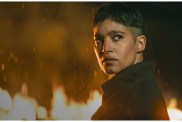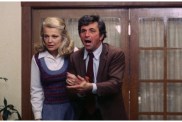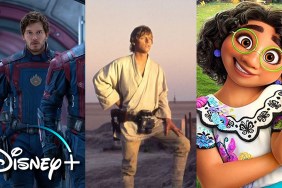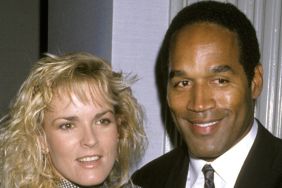Over three years after wowing the Sundance Film Festival with their debut Half Nelson, filmmakers Anna Boden & Ryan Fleck are back with their sophomore effort, Sugar, a very different film that takes place in the world of Dominican baseball players who follow their dream to come to the United States and be professional players, often in order to help their impoverished families back home.
Having already directed Ryan Gosling to an Oscar nomination, Boden and Fleck took a different approach with their second film, finding Algenis Perez Soto, an actual Dominican baseball player who could embody the personality of Miguel “Sugar” Santos, a 19-year-old pitcher trying to make it through the rigorous training camps back home and spring training in Arizona before getting placed on a minor league team based in Iowa. Miguel soon learns that it’s much harder chasing his dreams of going to the Major Leagues than his coaches in the Dominican Republic let on, and his journey takes a sudden and unexpected course for New York City.
ComingSoon.net sat down with Boden and Fleck to talk about their daring new venture, which shines a spotlight on a part of baseball that few fans of the sport will even realize is taking place every day.
ComingSoon.net: So I first want to talk about the timeframe of the movie. When we spoke two and a half years ago for “Half Nelson” (you can read that interview here) were the ideas for this movie already in development?
Anna Boden: Probably. We kind of knew that we wanted this to be our next film when we went to Sundance with “Half Nelson” which was in January ’06, so we’d already been starting to think about it and then started writing it shortly after Sundance. We shot it in Summer ’07.
CS: I’d assume you were baseball fans, but it seems like this could be a difficult subject to broach, being that you’re outsiders. Were you able to do any writing without actually being down in the Dominican Republic and learning about it firsthand?
Fleck: Once we had the idea and sort of the arc of what this journey was going to look like, we did a lot of book and internet research just to get a sense of what we could. We had everything we could get our hands on, then once we pitched the idea to HBO Films and they got excited about it, they paid for a trip to go down there – all and all it was several trips, three or four trips of research, but maybe a couple months. We spent time with a lot of baseball players. They invited us into their homes.
Boden: We really relied on their openness and generosity with their stories because of exactly what you said–we’re outsiders to this story and to make it real and to make it authentic we needed their help and I think that a lot of them just kind of wanted us to get it right. They heard what we were doing and they were so open with their stories ’cause they wanted to make sure that we weren’t gonna mess up this story that they were excited somebody was going to tell.
CS: Did you do a treatment based on what you wanted to see in the movie from having heard stories of the Sammy Sosa or some of the other ball players beforehand?
Fleck: Well, most of the research we’d done is about those famous players just because those are the guys who make the headlines. We’d sort of become familiar with the rags to riches journeys of those guys and there’s a lot of parallels except until the end of their stories–their stories differ a little bit differently than our character–but their journey is very similar along the way. We learned a lot about those guys, but then we really spent most of our focus in the research on guys currently in the process. So like, in Iowa, we interviewed a lot of Dominican players. Actually, we started our research process up in the Bronx with guys who had already been through the journey that Miguel goes on, so they ended up playing at that field where the last scene in the movie takes place and then we kinda worked our way backwards from there. Those guys introduced us to other guys and then we went back to the Dominican Republic, we met people they suggested we talk to.
CS: Your first movie benefited from two strong trained actors, and then you found Shareeka, who was amazing. This one, you had to find someone to play Miguel “Sugar.” Did you know from the very beginning you were going to go with a non-actor and that you’d have to have a ballplayer? How did you decide to go into that?
Boden: We have nothing against working with actors. We love actors, and if there had been a pool of 19-year-old Dominican baseball player actors to choose from, we would’ve gone straight for that pool. We realized pretty quickly that there wasn’t a big pool of young Dominican actors period and there was a much bigger pool of young Dominican baseball players. We thought to ourselves that if we talked to enough of ’em, we’re gonna find somebody with that energy, with that spark, with that natural ability to act. A lot of patience and 452 interviews later we stumbled upon Algenis playing baseball in the park and were so relieved that we’d kind of found this guy who was so expressive without doing anything and was so natural in front of the camera.

CS: Did you just talk to him a little or did you actually give him a script to read and audition or was it a combination of both?
Fleck: What we’d do is we’d roll up in a van on a baseball field in the Dominican Republic–we did this in dozens and dozens of fields–and we just pulled people together and they filled out a questionnaire and we interviewed them and just get a sense of who felt comfortable in front of the camera and who felt like they had a presence, who could tell a story, who could tell a joke, who could relate to us on some level. Then if they had some kind of spark, we would give them a scene from the movie. They’d take it home, the next day usually we’d meet with them and put them on tape reading that scene, which is an interesting process because nobody had ever auditioned for a movie down there before; they’re baseball players. We’d come back and we’d put them on tape and we said, “Okay, you’re gonna read the scene with Anna” or whoever is reading the other part with them, and they’d start reading the stage directions including the character name, and we’d be like, “Oh, I guess we should probably explain a little bit more because they haven’t seen a screenplay before.”
Boden: It kind of put things in perspective for us.
Fleck: Then we’d go to that stage and if we liked them again, we’d bring them back and do another scene, keep putting them on videotape…
Boden: We’d do some improv with them, have them meet other people who we liked for different roles and get them together. It was a really long process, because we didn’t only have to convince ourselves, we also needed to convince our financier that this was a guy who could carry the movie ’cause nobody was gonna give us however much money to make this movie if they weren’t sure that we’d found somebody who could carry it. So we put him on tape a lot and doing a lot of different things and brought it back and showed our producers in New York and also our HBO Films executive and we were very happy to find out that everybody agreed once we had the material with Algenis, everybody hands down knew that he was the guy.
Fleck: Yeah, we were actually surprised. We thought we’d have to fight to do some convincing.
Boden: Fight for it.
Fleck: He’s really interesting looking, but he’s not conventionally a handsome leading man. On the screen he feels that way, he feels like a beautiful young baseball player, but I think in the early days he wasn’t as handsome. (laughs)
CS: Financiers always want a name who can bring people into theaters but we keep seeing cases where that isn’t that important. How did you convince Algenis to put aside his own dreams of playing baseball to act in your movie?
Boden: That’s a good question and the truth is that Algenis, when we met him, he was playing with his friends and he was playing for fun, but he’d since given up his dream of becoming a professional. He had tried to sign with a team, had never done it and by the time we met him he was already what is considered over the hill for a Dominican baseball player–I forget how old he was, but young, early 20’s–and people don’t get signed in their early 20’s from the Dominican Republic anymore.
Fleck: Unless they’re faking their age.
Boden: So he was really excited about the opportunity.
CS: What were some of the challenges? Do either of you speak Spanish or know Spanish? I assumed you used translators for the script.
Boden: I speak Spanish, not perfectly; it’s definitely my second language.
Fleck: You’re very good.
Boden: Ryan speaks a little also which I don’t think that we could’ve done this movie if neither of us had spoken any Spanish. It would’ve been too challenging.
CS: What about translating the script for the actors and then translating it back and all that stuff?
Fleck: We wrote everything in English first and then Anna worked with a Dominican Spanish teacher who lives in New York, but is Dominican, and they worked really closely together on translating it all. Then, once we cast Algenis, we went down there and really went word by word with him to make sure that is was authentic for someone living in the Dominican Republic.
Boden: Also, living in the city that he grew up in. He really is the character in a lot of ways – he’s the same age, baseball player, from the same city the character grew up in. So he was our resident expert and we trusted him and put a lot of faith in him to help lead us with the language and making sure all the language was very authentic. Going back to English for the subtitles was very easy because we just pretty much went back to our script.

CS: I was curious about the perspective of someone who is Dominican or speaks Spanish fluently how they’d experience the movie in their native language. Did you get any feedback on that?
Fleck: Yeah.
Boden: People have been extremely surprised with the accuracy of the language and also the accuracy of the subtitles. I mean, that’s what people have said to us and we had a big screening in the Dominican Republic and people seemed to think that we got it right.
Fleck: And also the Venezuelans. We found real Venezuelan guys to play those parts and it’s a very different Spanish. Though I don’t understand all the nuances of the differences of the dialogues and that kind of Spanish that’s being spoken, Spanish speaking audiences definitely say, “Wow, it’s amazing how you got the Puerto Rican, the Dominican, the Mexican guy.” We just made sure we cast real people and didn’t pretend they were from somewhere else.
CS: I’m really interested about your interest as non-Latin filmmakers in exploring Latin issues. Your producer Paul Mezey also produced “Maria Full of Grace,” and then there’s “Sin Nombre,” another movie which just recently came out, which is by a non-Latin filmmaker. I’m interested in how you became interested in this from that angle. Was your curiosity piqued by the baseball players from that region and wanted to get their story known by people who might not be Latin?
Fleck: I think for us, we’re interested in stories and movies that we haven’t seen before, and if we could convince someone to finance it, it’s a great excuse for us to travel and learn about new experiences and new cultures and try to bring that to other people, other audiences as well.
CS: This was a lot of traveling too, compared to “Half Nelson.” You really went all over…
Boden: Iowa, Arizona, Dominican Republic and then…
Fleck: We even went to the Bronx.
CS: So were you able to do some scouting while you were researching all these different places?
Boden: Yeah, for the kind of major places and the big strokes where we wanted to shoot things, like when we found the Academy while we were doing our research. The Academy that we shot at in the Dominican Republic, which is the actual Arizona Diamondbacks facility there. When we were doing research in Iowa, we came across this beautiful field on the Mississippi with the bridge in the background and we were like, “That’s our field.” So those things were part of our research phase and then we went on additional scouting trips.
CS: I would think that certain people within Major League Baseball might not want this system to be known about because it might be seen as exploitative to give these kids these hopes and dreams for something that’s nearly impossible. Was there anyone who just didn’t want to talk to you guys about this to help with the movie?
Fleck: Surprisingly no. I don’t think the movie is either overwhelming positive or negative, I think it gives it a pretty fair portrait of what that world is like. We’ve done interviews with MajorLeagueBaseball.com and a lot of sports writers and they’ve all been very enthusiastic about the movie. We haven’t talked to Bud Selig, the Commissioner of Major League Baseball, about it, but I would imagine he would enjoy the movie
CS: Do you think he’ll have a chance to see it?
Fleck: I hope he does. I hope those guys see it.
Boden: The only people who were really tight-lipped about wanting to talk with us were young players who were a little bit too close to the experience I think. That was just as informative for us as the people who had had a little bit more distance from the experience and were able to really reflect on it in a thoughtful way just because we’d meet some of these guys and they’d be so fresh, they would’ve just had that sense of failure and they wouldn’t want to talk about their experience at all and seeing that kind of pain in them was very informative for how we wrote the character of Miguel.
CS: Has the movie changed at all since Sundance? When you have to rush a movie to get it done for the festival and then you have a year after to tweak, it’s kind of hard to resist. What were your feelings about it and did you want to make any changes?

Fleck: No, we changed it very slightly.
Boden: We didn’t have final music for the Sundance version.
Fleck: Which we knew going in. Michael Brook was working on the score as we had screened it at Sundance, so that’s all finalized.
Boden: So we knew that we were going to go back into it and it was really nice to be able to have a little break from it, see it on the big screen with a thousand people in the audience, and then have the luxury of going back and saying, “Oh, I think it was a little slow here. We can tighten it up here.” That’s what we did right after Sundance.
Fleck: Somebody who’d seen the movie at Sundance saw it again yesterday and said, “What did you change? I noticed you changed something.” I don’t think most people would notice if they’d seen both versions, but I think the pace worked a little bit better. I think it’s a stronger movie.
CS: You two have been so involved with Sundance, having shown your short there, as well as both features. You’re probably the perfect example of why Sundance is so helpful to filmmakers. When you have such a long time between Sundance and release, is that annoying or bothersome? There’s not much you can do about it unfortunately, but is it hard to have to revisit stuff so long after making it?
Boden: There’s something kind of nice about it. With “Half Nelson,” we went to Sundance and then we just bam, bam, bam, festival, festival, festival, festival and then we released in August. There was something great about that and our heads were totally in that movie for that period of time, but with this one, (there was) something nice about having a break and being able to write something new and now coming back to it and having a new enthusiasm for it and not being totally sick of it. (Laughs) It’s kind of like there’s something fresh about it again and it’s nice to be able to get excited about it.
CS: What have you been doing since finishing this? I know you’ve been attached to write a couple of things for studios. (“Special Topics in Calamity Physics” for Miramax and “It’s Kind of a Funny Story” for MTV Films) Will you direct either of them?
Fleck: Yeah, (but we’re) still working on the scripts. They’re at various stages; hopefully we’ll make one of those this year sometime.
CS: How has that experience been different as far as adapting and working with producers and the studio as opposed to just doing your own thing?
Fleck: I think they’re inherently bigger projects, bigger-budgeted movies and I think there are just more levels of people that you need to please to get to the shooting stage. I think that’s the main difference, but we don’t really know until we shoot it, how that’s gonna be. I think on our first two movies we weren’t really writing for anybody else above us and that’s not to say that movies aren’t ours in the way we want them to be in terms of the scripts.
Boden: We have to think about what other people think, because we wanna make ’em. (Laughs)
CS: How’s has it been a departure doing adaptation as opposed to writing your own material for these last two movies?
Boden: It’s cool, it’s fun. I mean, we got excited about the material. Adaptations have their challenges definitely, but they also have things that make them easier, which is a story that you can work with. (Laughs)
Fleck: Yeah.
CS: Do you have another project of your own that you wanna do?
Fleck: Yeah, we’re working on something that nobody else knows about.
Boden: Very highly secretive.
CS: Just like this movie was highly secretive when I talked to you two and a half years ago.
Fleck: Yeah.
Sugar opens in New York, L.A. and other select cities on Friday.









